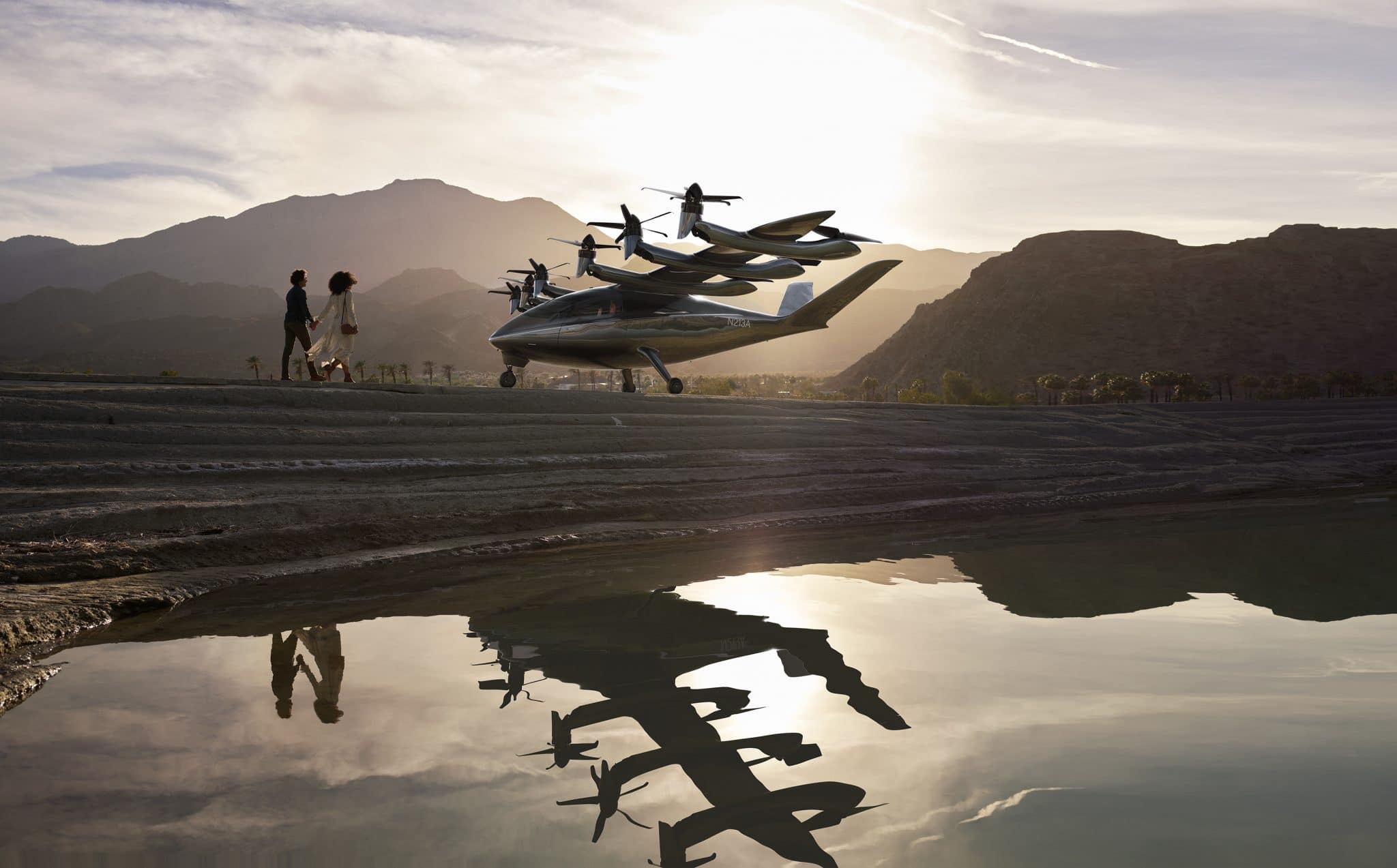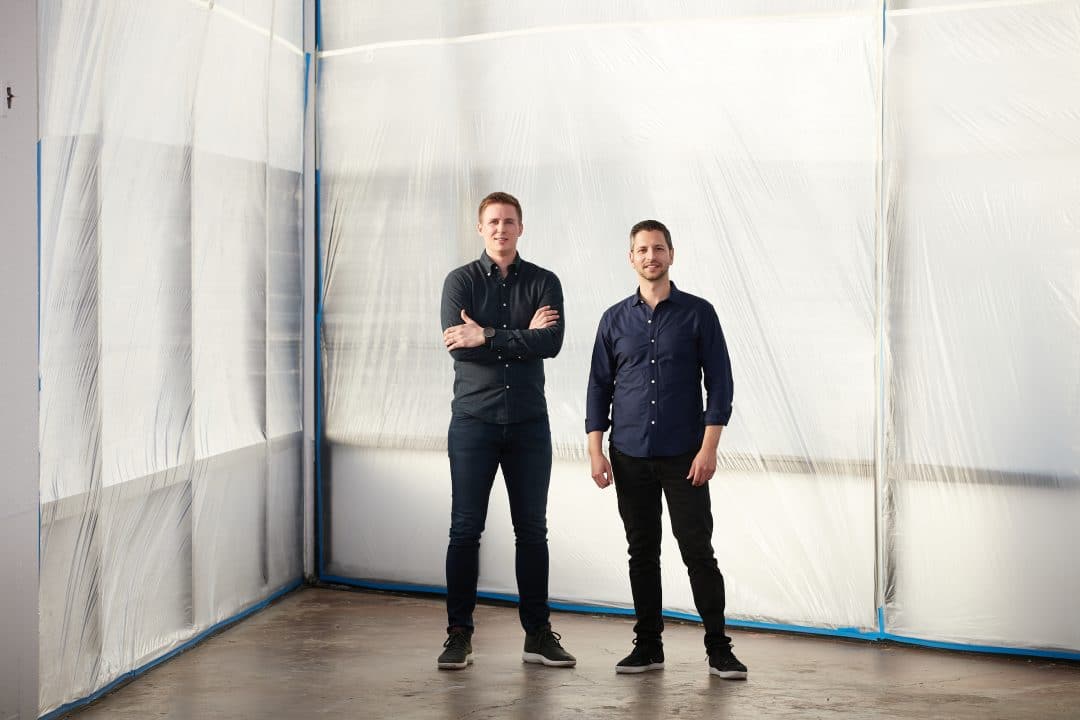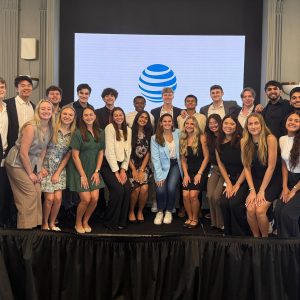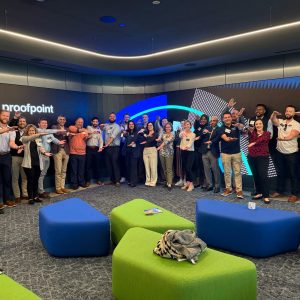UF Warrington alumni taking intracity travel to new heights
Sustainable air mobility for all is on the horizon thanks to Adam Goldstein and Brett Adcock’s Archer Aviation.
Adam Goldstein (BSBA ’01) and Brett Adcock (BSBA ’08) are what you might call serial problem solvers. Over the decade they have been working together, the duo has built multiple businesses that endeavor to overcome challenges in our world.
Their last company, Vettery, founded in 2013, sought to reinvent the traditional recruiting process by connecting highly qualified technology, sales and finance candidates directly with hiring managers through an automated system. Before Goldstein and Adcock sold the company in 2018 for $110 million, Vettery matched thousands of talented job seekers with companies in both the United States and United Kingdom.
The next challenge Goldstein and Adcock are looking to solve would allow you to bypass gridlocked traffic in a quiet, safe and sustainable way. Through their company Archer Aviation, Goldstein and Adcock plan to make commutes faster, safer and greener by taking intracity travel to the sky over the next few years.
“By 2050, the UN predicts that 70 percent of the world will live in cities,” Adcock said. “We’re looking to build a great product and service that will serve as a form of sustainable transportation and alleviate traffic in cities.”

Archer’s eVTOL, Maker.
To meet that goal, Archer is building its fleet of electric vertical takeoff and landing (eVTOL) aircraft, which are electric powered aircrafts that have the ability to take off and land vertically. Archer’s eVTOL, called Maker, can travel up to 60 miles at 150 miles per hour.
The eVTOL, Goldstein explained, would allow people to safely travel to destinations around a multi-mile radius in a significantly shorter amount of time than it would take by driving. While the eVTOL is likened to the way a helicopter serves as an air taxi, it would be significantly safer, quieter and cheaper, both from a company and customer perspective.
“[The eVTOL] has a cool societal impact that would give people the ability to travel to places that would have been a challenging drive,” Goldstein said. “For example, Gainesville to Jacksonville. That would normally take a while to drive, but the eVTOL would allow people to get there faster and at a price point that is accessible for the masses.”
The eVTOL’s cheaper, safer and quieter operation stems from its electric-powered motors, much like those that run electric cars seen on roads today.
“There’s been large advancements in batteries and electric motors, partially driven by advancements in electric vehicles,” Adcock said. “They have gotten good enough now that you can put these types of technology on an aircraft. And when you move to electric motors, there’s an incredible amount of benefits.”
Those benefits, Adcock notes, include lower operating costs, less noise, a higher level of safety and a more sustainable way to travel.
While Archer is building Maker in California, the eVTOL wouldn’t be possible without the efforts of engineers working at the University of Florida. For the past four years, Archer has been working with faculty and Ph.D. students from the Herbert Wertheim College of Engineering on electric vehicle research.
In addition to its work with UF’s engineering faculty and students, Archer runs a lab in Gainesville to provide additional research support. The lab is home to six full-time employees who Goldstein and Adcock hired out of UF. Notable also is the location of the lab, off of Archer Road, as it served, in part, as inspiration for the company’s name.

Archer’s eVTOL, Maker.
Thanks to the collaboration between Gators, Archer’s Maker has been propelled to its next critical step – Federal Aviation Administration (FAA) certification. Like all aviation vehicles, Archer’s eVTOL must be verified by the FAA in order to manage risk and meet safety standards for use by the public. Archer currently has a team of 50-plus people at the FAA working to certify Maker, which is expected to be complete by 2024. At the time it’s certified, Archer will be allowed to take its first paying customers to their destinations.
Goldstein and Adcock are already on track to scale in two big ways. The first is through a $1 billion commercial order from United Airlines for 200 aircraft. These aircrafts would ultimately be used by United as a cost-effective and sustainable way to get customers to and from the airline’s hub airports.
“An important mission for United is to work towards zero emissions,” Goldstein said. “United wants to be at the forefront of urban air mobility and decarbonization. This [partnership] was the first step to work on that mission.”
In addition, an agreement to merge with the special purpose acquisition company Atlas Crest Investment Corp. has allowed Archer to make its public market debut, and in doing so, raise $1.1 billion in capital. Archer will be listed on the New York Stock Exchange as “ACHR” when that deal closes in the coming months.
These two key partnerships, plus additional investments, have ultimately brought Archer to a $5 billion valuation. Fellow Gator and mentor to Goldstein and Adcock, Saul D. Goodman (BSBA ‘89) is proud of the work that Archer’s leaders have set out to accomplish.
“Adam and Brett are true entrepreneurs with vision, execution skills, a strong desire to succeed and importantly have remained humble as people,” said Goodman, Senior Managing Director at Evercore, a leading independent investment bank. “They have significantly raised the profile of Florida graduates across the financial, aerospace, technology, green economy and venture capital industries.”
Reflecting on how their work elevates the University of Florida as a whole, Goldstein and Adcock are honored to rise to the occasion.
“Growing up in the South, we’re very proud to be Gators,” Goldstein said. “But when you leave Florida, you meet other people who don’t have the same view. In reality, what originates at UF is awesome, and there are so many great things happening here [and] people taking on crazy things that are becoming possible and changing the world.”




